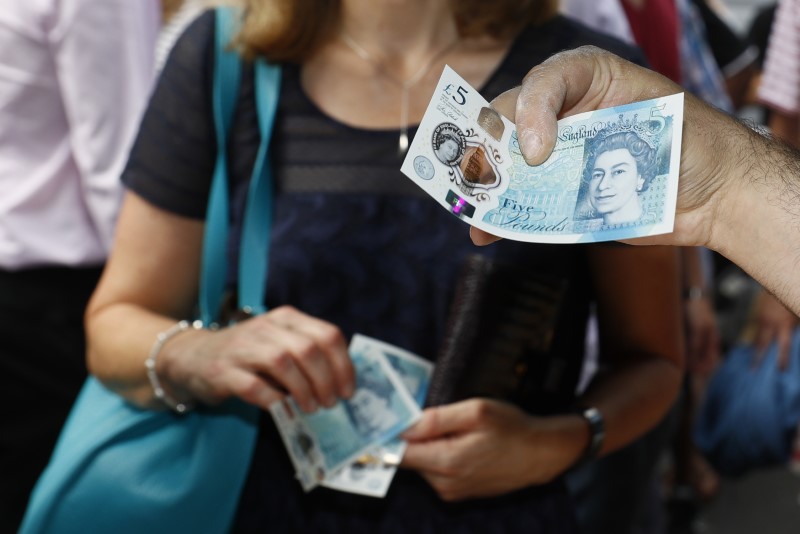Investing.com - The pound popped higher against the dollar on Thursday, hitting one-month peaks as stronger than expected UK retail sales figures indicated that consumer spending remains resilient despite rising inflation and weak wage growth.
GBP/USD touched highs of 1.2528, the most since February 24, up from around 1.2472 ahead of the report.
Retail sales jumped 1.4% in February the Office for National Statistics said, easily beating economists’ forecasts for an increase of just 0.4%.
January’s figure was revised down to show a 0.5% drop, from the previously reported 0.3% decline.
But the underlying trend was more negative the OSN warned, as retail sales over the three months to February fell by 1.4%. It was the second straight monthly decline, the largest fall since March 2010 and only the second fall since December 2013.
"The underlying trend suggests that rising petrol prices in particular have had a negative effect on the overall quantity of goods bought over the last three months," ONS statistician Kate Davies said.
The report came after Tuesday’s UK inflation report showed inflation rising back above the Bank of England’s 2% target for the first time since September 2013 in February.
Economists fear that rising inflation at a time when wage growth is slowing will erode consumer spending, the main driver of growth in the UK economy.
Sterling extended gains against the euro, with EUR/GBP down 0.37% to 0.8616 from around 0.8644 earlier.
Meanwhile, the dollar paused as investors took a breather ahead of a crucial vote on the Republican healthcare bill in the U.S. in what is a major test for President Trump.
The U.S. dollar index, which measures the greenback’s strength against a trade-weighted basket of six major currencies, ticked up 0.09% to 99.57, after falling to a seven week low of 99.34 in the previous session.
The dollar has come under heavy selling pressure in recent sessions amid widespread risk aversion spurred by doubts over the Trump administration’s ability to push through the pro-growth economic agenda promised by the president.
Investors viewed the Trump administration's struggles to push through a healthcare overhaul as a sign he may also face setbacks delivering on other policy pledges including corporate tax cuts, regulatory reform and infrastructure spending.
